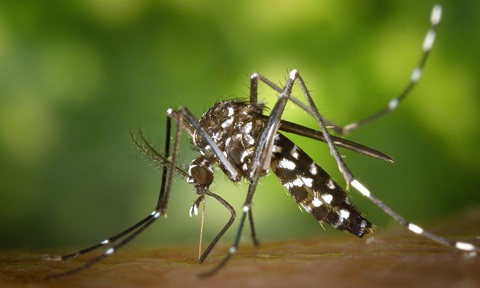Gearing up to meet future needs
NTU researchers in fields from medicine to learning sciences have won competitive grants to tackle future challenges.
.jpg?sfvrsn=6eedbf35_3)
To prepare for future outbreaks in the wake of COVID-19, a Singapore team of scientists led by NTU’s Lee Kong Chian School of Medicine (LKCMedicine) has joined a United States programme to develop drugs against viruses with a high chance of causing pandemics.
These include the SARS-CoV-2, dengue and Zika viruses.
The team won a competitive five-year grant from the United States’ National Institute of Allergy and Infectious Diseases (NIAID). The grant is part of a larger funding effort by NIAID announced in May 2022 to speed up development of antiviral drugs against pandemic diseases. The aim is to create drugs that patients can take at home when their symptoms are mild.
Leading the Singapore team is structural virology expert Assoc Prof Luo Dahai from LKCMedicine. He is joined by Dr Liew Chong Wai from the NTU Institute of Structural Biology.
===
Some of the biggest earthquakes recorded have occurred in Southeast Asia. The region’s dense population is also exposed to more than 750 active or potentially active volcanoes. Understanding how these natural events work helps communities prepare for upcoming natural disasters.
Traditionally, volcanoes, tectonic faults and related phenomena such as tsunamis and landslides have been treated as independent natural systems. But scientists believe they are related and often happen concurrently.
Researchers led by Prof Emma Hill, Chair of NTU’s Asian School of the Environment and a principal investigator at the Earth Observatory of Singapore, will study these natural disasters collectively to uncover the links between regional tectonics and volcanoes, and the impact of these natural disasters on Southeast Asian communities, which includes infrastructure damage and deaths.
Dubbed “Integrating Volcano and Earthquake Science Technology (InVEST) in Southeast Asia”, the five-year study began in November 2022 and is funded by Singapore’s Ministry of Education.
===
Singapore has been fighting the dengue scourge for years and, more recently, COVID-19. Now, a project involving researchers from Singapore and France aims to develop a new way to predict when and where these infectious diseases occur in Singapore and prevent them.
Named “Shaping Public Adaptive Capacity for Environmental infectious diseases (SPACE)”, the research project started in April 2022 and is co-led by Prof Shirley Ho, Associate Vice President (Humanities, Social Sciences & Research Communication), together with Prof Natacha Aveline from CNRS@CREATE in Singapore. CNRS@CREATE is the first overseas subsidiary of the French National Centre for Scientific Research.
The three-year Intra-CREATE project is funded by the Singapore Government’s National Research Foundation.
SPACE also seeks to develop policy ideas to improve Singapore’s ability to prevent and mitigate diseases, along with improving how the Singapore Government communicates its measures to mitigate and control epidemics.
===
Organisations have developed augmented reality (AR) apps that allow people to point their phones’ cameras at locations and overlay digital information on their phone screen views.
Is it possible for AR to be implemented
in primary and secondary schools to help students learn subjects such as science
and Chinese? Can AR help improve a student’s academic performance? This is
the focus of a five-year research project under Asst Prof Wen Yun from the National Institute of Education’s
Learning Sciences and Assessment Academic Group.
The project was awarded the Social Science and Humanities Research Fellowship from Singapore’s Social Science Research Council in June 2022.
The study is expected to provide insight into how AR can be used to develop teaching strategies to meet students’ needs, inform the design of lessons inside and outside classrooms, and identify factors that support or hinder teachers in crafting and implementing AR-based lessons.
The article appeared first in NTU's research & innovation magazine Pushing Frontiers (issue #21, December 2022).

-and-dr-dorrain-low-from-ntu-singapore's-lkcmedicine.tmb-listing.jpg?Culture=en&sfvrsn=b389b500_1)

.tmb-listing.jpg?Culture=en&sfvrsn=f43836b1_1)
.tmb-listing.jpg?Culture=en&sfvrsn=82921582_1)
.tmb-listing.jpg?Culture=en&sfvrsn=fba51b63_1)
